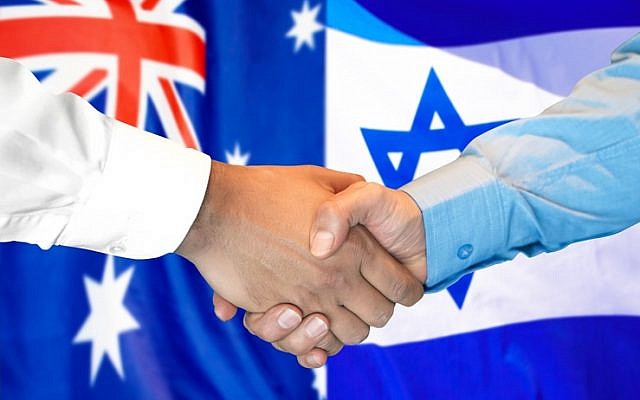That was the year that was
'It is abundantly clear to me that this community is unique in its support and advocacy of Israel, both in practical terms and in its allocation of resources'.
PUTTING aside the political uncertainties affecting the Israeli democratic system and as in so many years gone by, 5779 was a year of turmoil in the wider Middle East while the region continued on its inexorable march to remain the world’s worst neighbourhood.
The civil war in Syria continues to rage with perhaps as many as 570,000 people slaughtered over the past seven years; the proxy war in Yemen carries on unabated where almost 100,000 people have been massacred and perhaps the same amount have died of starvation; and terrorist organisations such as Hamas, Hezbollah and Islamic Jihad remain as viciously dangerous and active as ever.
Libya, Lebanon and Iraq have also virtually ceased to function as viable nation-states and others are teetering on the brink.
Above all, and to all intents and purposes orchestrating the massive loss of life and the perpetuation of bloodshed, stands the violently subversive and medieval regime of Iran whose clerics continue to foster instability, death and destruction wherever possible. Its consistent, virulent hatred of Israel; its incessant calls for the eradication of the world’s only Jewish state; its striving for nuclear weapon capability; its military entrenchment in Syria; and its support for Hezbollah and Hamas make it an existential threat which cannot and will not be tolerated.
The late Abba Eban once said that “a pessimist is someone who when faced with the worse of two evils chooses both of them”. Since Israelis continue to figure high on the list of the world’s happiest people, we have palpably not succumbed to pessimism, despite the trials and tribulations of our region. For, despite all, there is much about which to be optimistic. The changing geo-strategic architecture in the Middle East has brought in its wake new alignments between Israel and many of its Arab neighbours, and with many of them, relations have never been better. There is a new dynamic between Israel and much of the Gulf world, including UAE, Bahrain, Oman and others, while ties with Egypt and Jordan remain strong. Israel is no longer viewed by them as being part of the problem of the region, but as an integral part of the solution to the Iranian threat and that of rising Islamism. Relations with many countries in Asia, Latin America and Africa, including with Muslim states, continue to flourish and even with much of the continent of Europe, especially Eastern Europe, ties are getting stronger by the day. Israel’s economy remains in fine fettle and the income from offshore gas reserves bodes well for the future.
Here in Australia, our bilateral ties are burgeoning as never before. In the past year, the 70th anniversary of the establishment of diplomatic relations, we have finalised a joint treaty on double taxation with its ratification expected by the end of 2019, we have signed a bilateral MOU in the field of cybersecurity between our respective cyber directorates and we have concluded all-important agreements in the crucial field of water with the governments of NSW and Queensland, with Victoria next.
Due to the political situation in Israel there has naturally been a hiatus in visits in both directions at the highest ministerial level, but even here, there has been a steady stream of visits of state ministers to Israel and in the next few months we will witness visits of at least two premiers, at least one federal minister and a high-level bipartisan delegation of current and former national leaders.
We are particularly gratified that a high-powered academic delegation will tour Israel in November consisting of 19 vice-chancellors and other senior representatives of Australian universities, with the sole aim of fostering additional avenues for joint research and academic cooperation. On the economic front, and while bilateral trade is steadily growing, 20 Israeli companies are now quoted on the ASX, more than any other country in the world except New Zealand, countless economic delegations have visited Israel this year including under the auspices of the superb organisations which are dedicated to bilateral economic ties and two of Australia’s largest conglomerates plan to open R&D centres in Israel within a few months.
I look at the year ahead with a deep sense of optimism in our bilateral ties. There is a buzz in the air and we are discussing both at the highest and the working levels new areas for collaboration including those which directly affect our national interests.
All of us at the embassy have made a special effort to work closely with the Jewish community of Australia, its leadership, its activists and its membership.
After 39 years in Israel’s foreign service and having been stationed around the world, it is abundantly clear to me that this community is unique in its support and advocacy of Israel, both in practical terms and in its allocation of resources. Indeed, few if any of the achievements in our bilateral relations would have been possible without this partnership and for that we are deeply grateful.
So it is in that frame of mind that on behalf of all of my colleagues at the Israeli embassy, I wish each and every one of you a Shana Tova U’metuka. May it be a year of peace in our region and a year of health and prosperity for Australia and all its Jewish citizens.
Mark Sofer is the Israeli ambassador to Australia.


comments